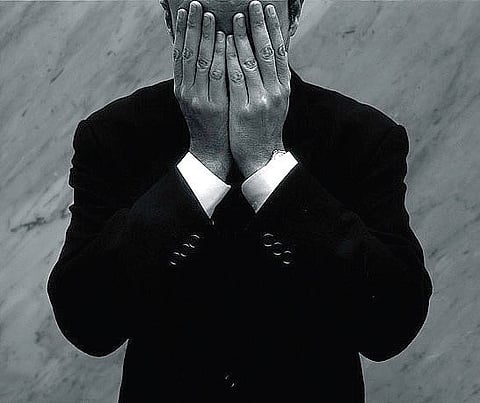

Recently, Markus Persson—the creator of the video game Minecraft—shared on Twitter a series of rambling tweets, presumably sent from his $70 million Beverly Hills mansion. The multibillionaire revealed that since selling his gaming company, Mojang, to Microsoft, he has ‘never felt more isolated’.
Many will find it hard to feel sympathy for Persson, who less than a year ago cashed a $2.5 billion cheque. But do Persson’s tweets prove that the age-old maxim, money can never really make you happy, is right?
Matt Haig, the author of Reasons to Stay Alive, a memoir about his battle with depression, believes that, although we live in an age that equates financial success with a kind of salvation, extreme success in fact offers little immunity to depression. “We assume that, because poverty can exacerbate emotional and mental problems, its opposite, wealth, will lead to emotional and mental well-being, but this is not always the case,” he says. “I think we would have a much healthier society if we could break the false correlation between wealth and happiness, and if we valued the latter a bit more than the former.”
Haig’s theory that wealth and success do not necessarily lead to happiness is corroborated in the case of Dong Nguyen. A Vietnamese game-maker, Nguyen developed Flappy Bird, which became one of the most downloaded smartphone games. Overwhelmed by the game’s popularity, he took it off the market. Nguyen has subsequently cited the instant global exposure, huge cash injection and media attention as factors behind his decision.
There are many examples of people who have reached what they consider to be the one unsurpassable pinnacle of their lives, who then descend into a spiral of depressive and erratic behaviour.
Buzz Aldrin, the second man on the moon, suffered from depression and alcoholism and burned his way through three marriages following the Apollo 11 mission in 1969. His biography, Magnificent Desolation, documents how sucess, before he had even reached 40, sent Aldrin’s life into ‘inglorious ruins’.
Psychotherapist Dr Laura Oates equates the experiences of success or gain with other depression-triggering life events, such as the birth of a child or retirement. In each of these instances, individuals spend a long time waiting or preparing for an event—only to have it overwhelm them when it finally arrives. “We use a technique called behavioural activation,” says Oates, adding, “There are two sides of the coin—the external event and the internal response. And when external events become difficult to process, the way you initially respond can set you on a downhill path.”
Commonly referred to as wealth fatigue syndrome (WFS) or, somewhat more wittily, ‘affluenza’, sudden financial gain is not always the cause of the problem. The trigger can be monetary, but unexpected success in any area—one that initially appears wonderful but soon becomes troublesome—can also be blamed.
The world of sport is littered with athletes who have succumbed to depression, usually after calling time on their careers. Take away the routine of training, or the focus on winning, and some of them struggle to find meaning in their lives. Sir Bradley Wiggins, the champion Olympic and Tour de France cyclist, has spoken frankly about his experiences with depression. “Apparently it’s a well-known phenomenon that Olympic gold medallists lose the plot for a month or so. For a while, my life threatened to spiral out of control,” he wrote in his 2009 memoir, In Pursuit of Glory.
Jane Powell, the chief executive of Campaign Against Living Miserably (CALM), believes it is possible to win too big. “External success is not linked with internal contentment at all. We repeatedly see huge highs followed, inevitably, by dramatic lows. Once you gain that achievement you so ardently wished for, the question is: what next? Was it worth it? Did it mean anything? What can I do now, is that me done?” says Powell.
Whether it is walking on the moon, winning gold or making a million, realising your wildest dream undeniably has its downfalls. But, thankfully, Dr Oates can prescribe a very simple cure for what might be seen as the ultimate First World Problem. Rather than resting on your laurels, you should set new targets, regardless of how they compare to your existing achievements. Even if you’ve already walked on the moon, you should reach for the stars.
And, in the case of Sir Bradley, even if there are no more medals to win or titles to claim, there is always a reason to get back on your bike.